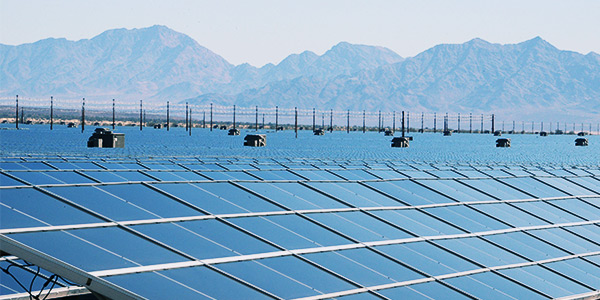The standard authorization request (SAR) drafting team for Project 2020-06 (Verifications of models and data for generators) is considering how to merge its work with Project 2020-02 (Transmission-connected dynamic reactive resources) after most industry respondents expressed support for the idea in a recent informal comment period.
Project 2020-06 was launched last year by NERC’s Standards Committee upon recommendation by the Inverter-based Resource Performance Task Force (now the Inverter-based Resource Performance Working Group) and endorsement by the Reliability and Security Technical Committee. (See “IRPTF SARs Accepted,” NERC Standards Committee Briefs: Sept. 24, 2020.)
The project targets reliability standards MOD-026-1 (Verification of models and data for generator excitation control system or plant volt/VAR control functions) and MOD-027-1 (Verification of models and data for turbine/governor and load control or active power/frequency control functions). Both standards “contain language that is specific to synchronous generators [and] not applicable to IBRs [inverter-based resources].” The project aims to clarify which requirements apply to which type of resource.
Both are also in the scope of Project 2020-02, which was approved by the Standards Committee in March 2020 with the goal of modifying them and other standards to apply to nonsynchronous energy sources. (See “Approvals,” NERC Standards Committee Briefs: March 18, 2020.) However, that project is now “on hold indefinitely,” according to NERC, with its scope to be “parsed out” to other development teams working on the applicable standards.
NERC did not give its reason for suspending 2020-02, but the last informal comment period on the SAR, which closed in May 2020, revealed widespread dissatisfaction among participants. Many complained that the project’s scope was too broad: Daniela Atanasovski of Arizona Public Service (APS) called for a separate SAR for HVDC devices, while Marty Hostler of Northern California Power Agency said the SAR “needs to clearly state” that generator owners and operators will not be affected by any changes to the relevant standards.
“From our experience with FERC, NERC and WECC, unless the SAR or the standard specifically states it is not applicable to GO/GOPs, we are going to have to annually provide documentation/evidence proving that we don’t own/operate transmission-connected resources and compile evidence, or null evidence letters, annually proving compliance or non-applicability of the standard,” Hostler said.
Concerns Remain over Scope
The suggestion to move all modification efforts for MOD-026-1 and MOD-027-1 under Project 2020-06 was backed by many critics of 2020-02, such as Richard Jackson of the U.S. Bureau of Reclamation, who repeated an earlier recommendation that the drafting team “coordinate changes with other existing drafting teams for related standards.” Kelsi Rigby of APS voiced approval as well, through she requested clarity that the drafting team for 2020-02 would continue to work only on other applicable standards.
Many who had supported 2020-02 also approved of the change. Mark Gray of Edison Electric Institute said last year that the project “identifies a gap in the existing body of reliability standards,” but now he “supports the concept” of merging the efforts. He noted that the change would be a “significant expansion” of 2020-06 and urged that the revised SAR be resubmitted for comment.
However, not all commenters viewed the move positively. Thomas Foltz of American Electric Power called the scope of 2020-02 “far too open-ended” but urged that the projects remain separate, even though combining them “[appears] to make logical sense from a topical standpoint.”
“There is technical merit in keeping the two projects and resulting standards separate because even though IBRs and dynamic reactive devices are both electronic-based, they are different enough in function and configuration to justify their own distinct efforts and resulting standards,” Foltz said. He added that the implementation plans for MOD-026 and MOD-027 are already “well underway” and that modifying them at this point would create confusion.
Bobbi Welch of MISO said the organization is “supportive of the same [standard drafting team] working on both projects” but called for them to be “approved and tracked separately.” Welch warned that tying the two projects together would require “adding transmission owners and a host of … equipment” that are currently not covered by MOD-026 and MOD-027 to their scope, potentially delaying the production of specifications needed for generator testing.




